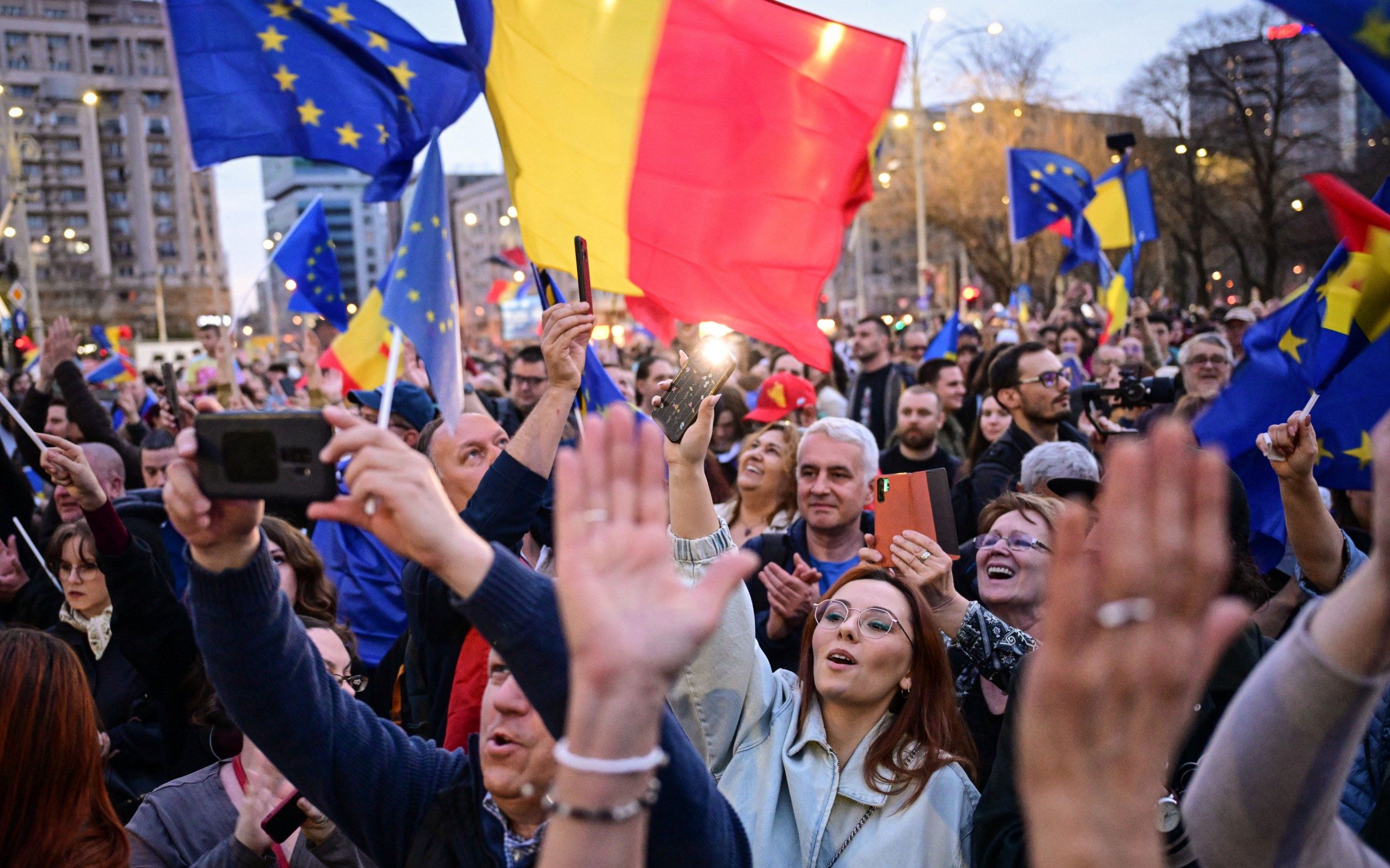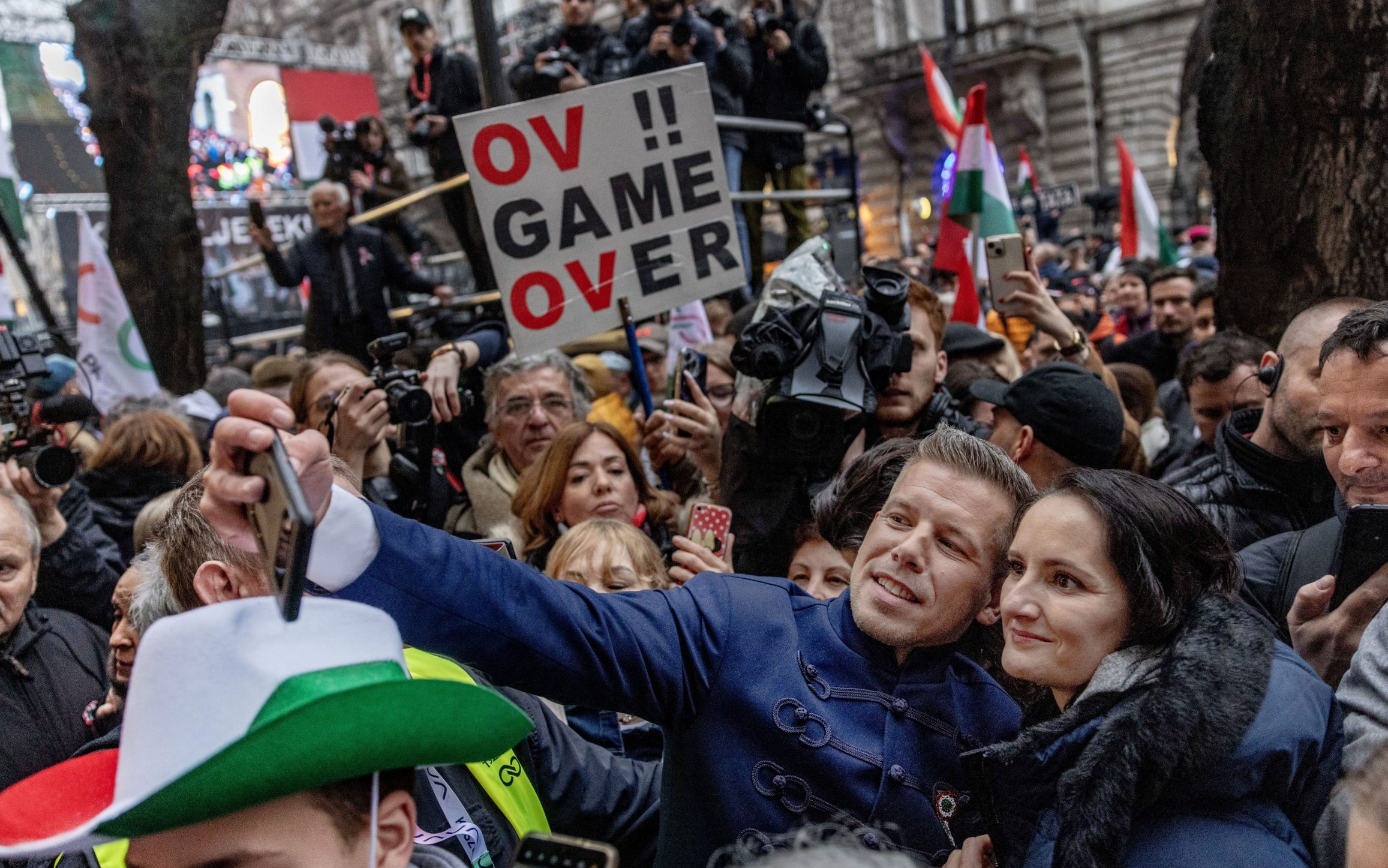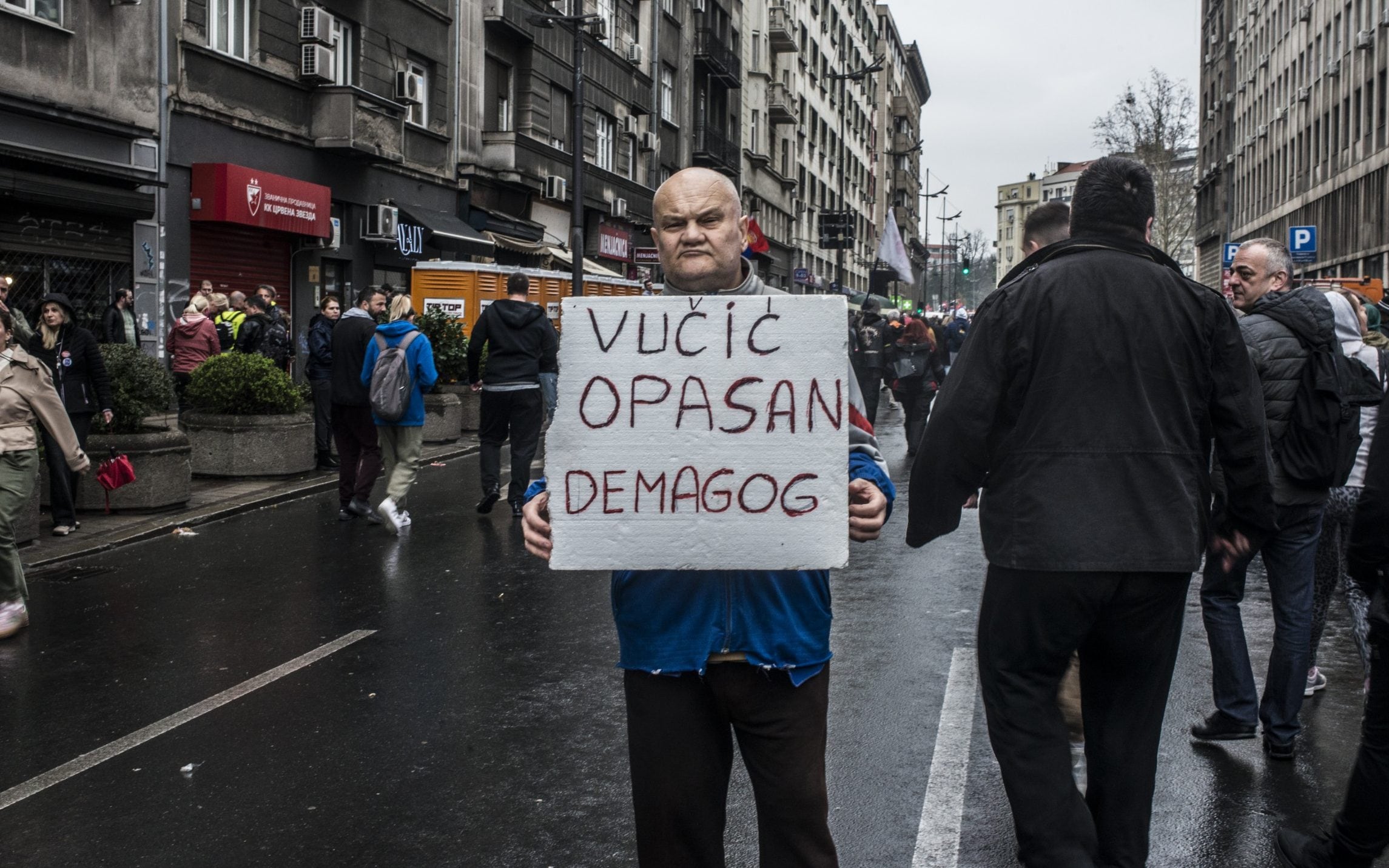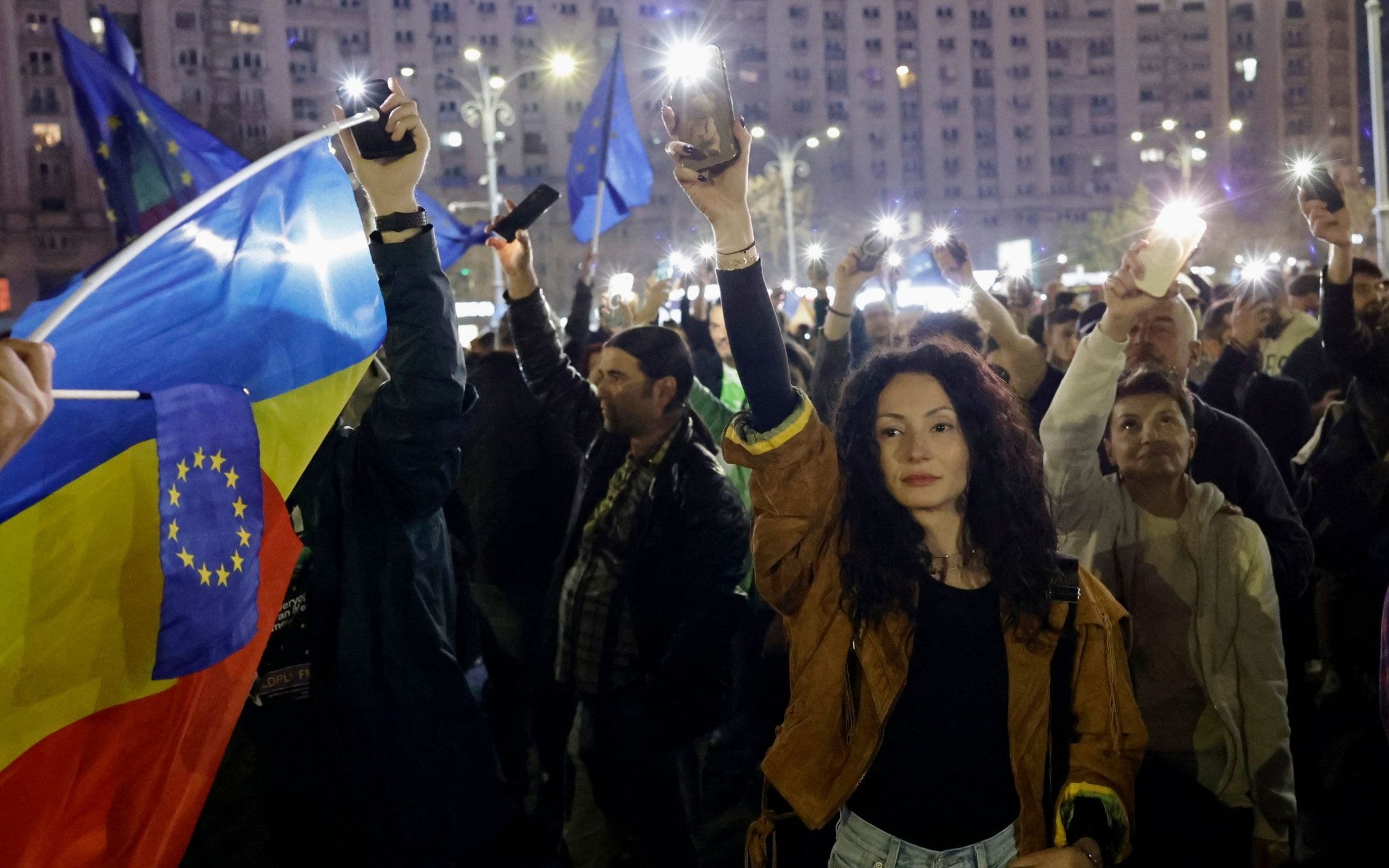
Tens of thousands gathered in Budapest, Belgrade, and Bucharest on Saturday for distinct demonstrations; some were advocating for Europe while others were against Russia.
A minimum of 50,000 individuals took part in a march in Hungary calling for an end to Viktor Orban’s 15-year leadership. Meanwhile, Serbia experienced its biggest opposition gathering to date, and numerous protesters in Romania voiced their backing for the European Union during demonstrations.
In Budapest,Hungarians strongly opposed Mr. Orban, who was seen as The European Union leader who is Vladimir Putin’s closest ally in favor of the rising pro-European opposition Tisza Party, led by Peter Magyar.
“Those who cheat on their own nation should end up in the dustbin of history,” Mr Magyar, a former Orban ally, told the huge crowd. “Our time has come.”
Mr Magyar has pledged to create a stronger Europe, bring an end to what he views as an entrenched system of corruption, and called on Hungarians to form a broad coalition against Mr Orban’s government.

During a distinct rally commemorating the Hungarian Revolution of 1848, Mr. Orban pledged that his right-wing administration would eradicate a worldwide "shadow army" comprised of non-governmental organizations, reporters, and political figures serving both the European Union and what he referred to as a "liberal American empire."
"After today’s joyous celebration comes the Easter cleanup. The pests have survived the winter," Mr. Orban told the audience.
At the same time, as many as 325,000 individuals flooded into Belgrade, highlighting the peak of prolonged demonstrations against corruption that have shaken Serbia over the past few months.
The frequent demonstrations were ignited by the collapse of a railway station roof in November, which resulted in 15 fatalities. This event consolidated public outrage against Aleksandar Vucic’s Russian-friendly government , where corruption and a cover-up of unsafe construction practices were cited as the reasons for the fatalities.
Several high-ranking officials, including the prime minister, have stepped down, however, the frustration is strongly directed at Mr. Vucic, who closely associated himself with the renovation of the Novi Sad station.
Under President Vucic, Serbia has kept amicable ties with Russia, choosing not to enforce sanctions on their ally following the complete invasion of Ukraine.

Before the large-scale demonstration, the progressively authoritarian leader alleged that there was going to be an effort to oust him, referring to it as a "foreign-inspired revolution" tied to Western spy organizations, though he did not offer any proof.
Russian authorities have similarly charged that Western powers are behind the protests in Serbia aimed at removing President Mr. Vučić, who has held office as both president since 2017 and previously as prime minister.
Numerous masked individuals dressed in black assembled across from the Serbian parliament building. According to local sources, members of organized soccer fan groups were among them, raising concerns about potential aggression from a pro-Vucic crowd.
Most Western governments have mostly remained silent about the protest movement, viewed as an effort to stay on good terms with Mr. Vucic so as not to drive him toward aligning more closely with Moscow.
Mr Vucic stated on Saturday that he would do so government got “the message” yet maintained that most people oppose a "color revolution," referring to movements intended to establish Western-style democracies in former Communist countries, like the one in Ukraine in 2014 that led to the ousting of its pro-Russian leader, Viktor Yanukovych.
On Saturday in Romania, thousands of people gathered in Bucharest to champion their nation’s path within Europe and express their disapproval of growing nationalist and anti-EU sentiments.

Romania is due to repeat its two-round presidential election in May after the country’s top court voided an initial ballot in December due to accusations of Russian interference.
Calin Georgescu, who was ahead in the surveys, has been prohibited from participating In the recount election, he and Moscow refuted claims that the Kremlin interfered with his campaign.
On Saturday, pro-European Romanians gathered like an ocean of blue EU and tricolor Romanian flags. Some chanted against Russia with slogans such as "Unity and Respect - Europe Grants Us Rights," or "Embrace Freedom - Say No to Russian Influence."
Subscribe to the Front Page newsletter at no cost: Your daily briefing on The Telegraph’s key stories delivered directly to your email every single day of the week.


Post a Comment